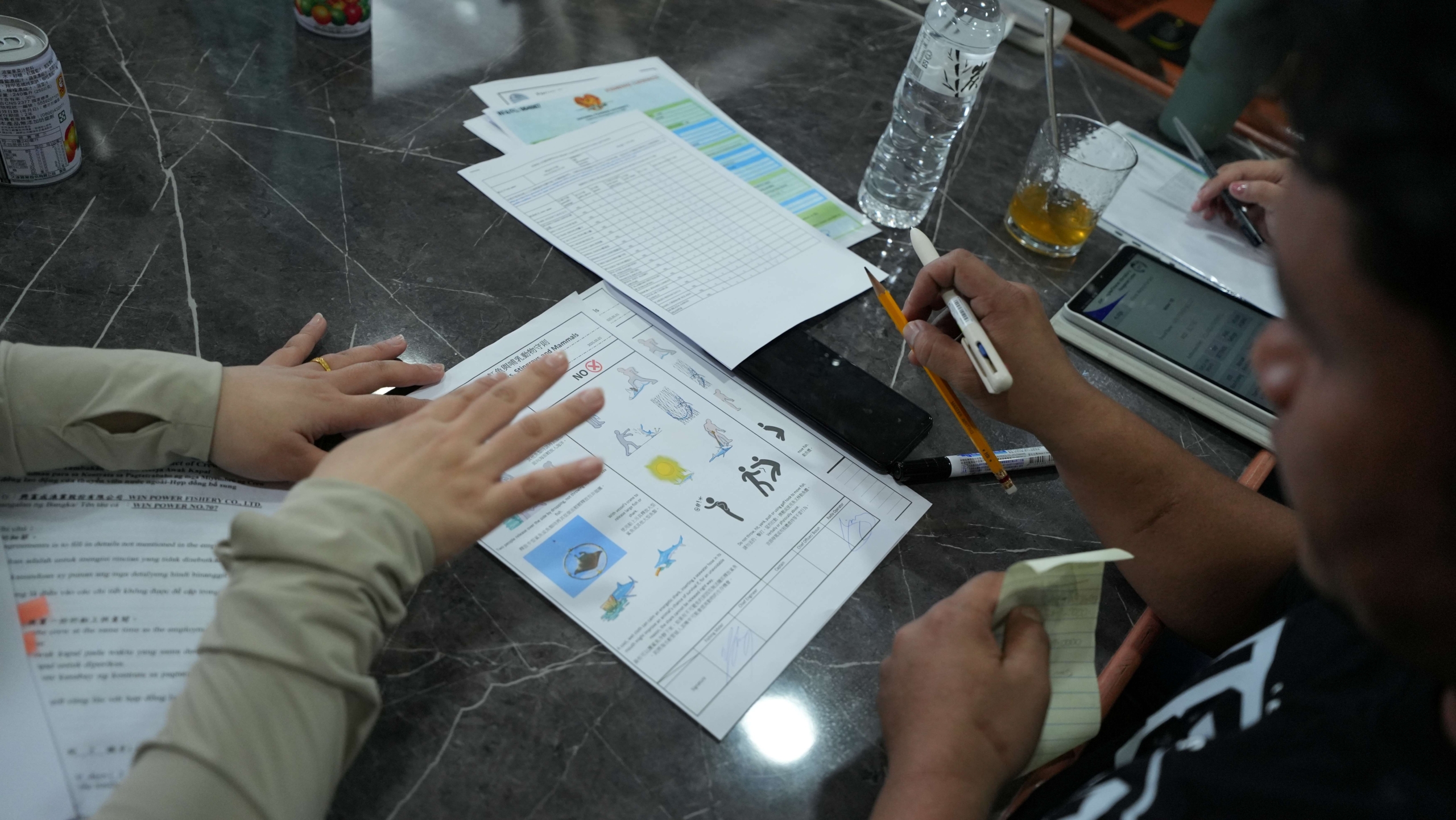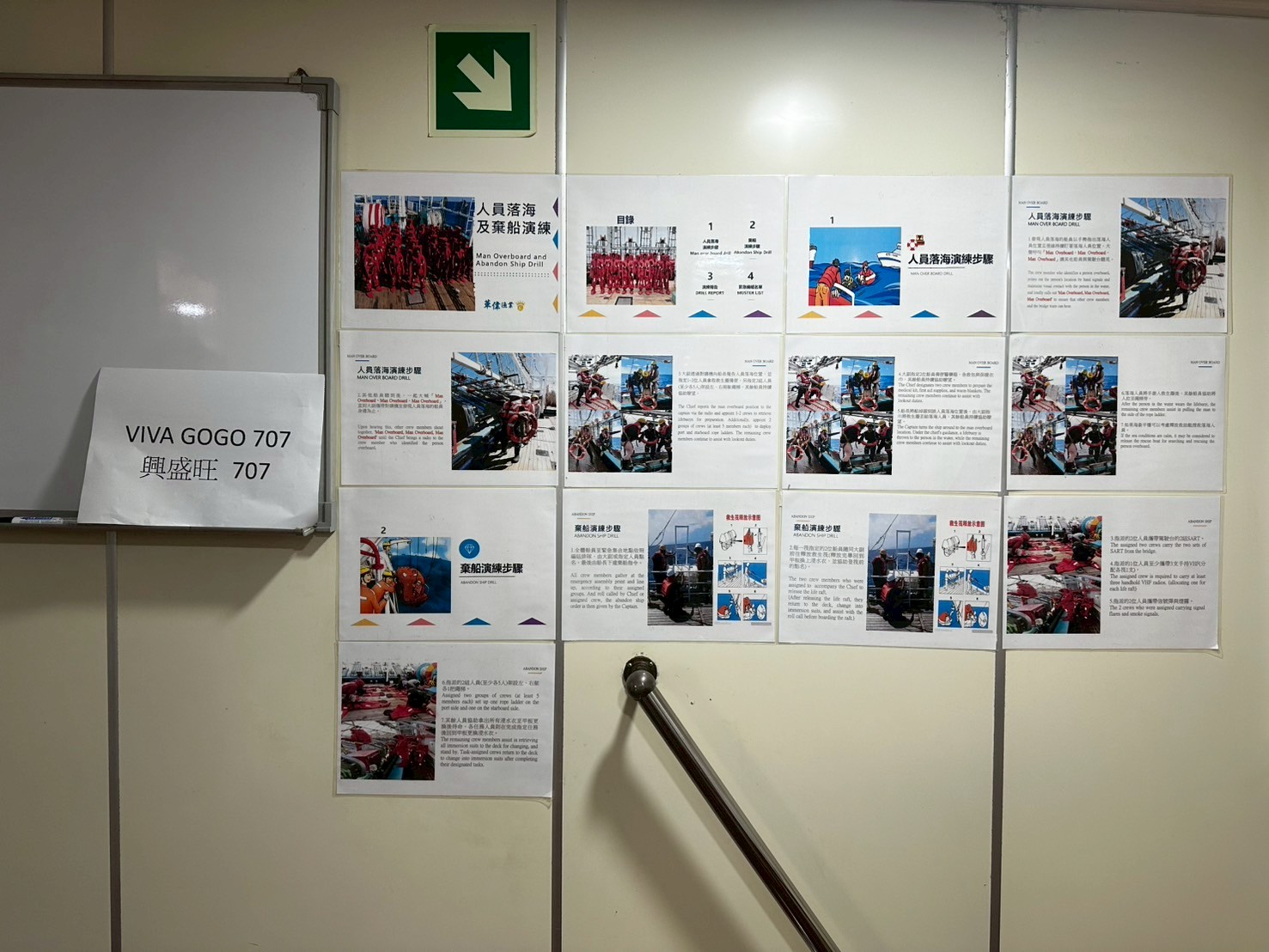
Audit Framework and Implementation of Corporate Social Responsibility
- At Fair Well Fishery, we view compliance not as an obligation, but as a core value. We actively participate in industry-related third-party audits and inspections, while building management systems aligned with international standards. Over the years, we have progressed from local Fisheries Agency inspections of catch sources and document management to rigorous reviews by globally recognized audit organizations such as ISSF, EII, and FIA — ensuring alignment with evolving global labor rights standards and audit benchmarks.
With ESG principles and labor rights now at the forefront of international market expectations, we have expanded our commitment beyond meeting external requirements. Our internal audit scope covers the full spectrum of our operations — from offshore fishing activities to onshore administrative processes.
We pledge to:
- Respect and safeguard human rights, prohibiting child labor and labor exploitation.
- Ensure reasonable working hours and fair wages.
- Embed environmental protection as a core business value.
- Disclose business operations and supply chain information with transparency.
These commitments reflect not only our dedication to meeting market demands, but also our responsibility to advance the sustainable development of the global fishing industry.




